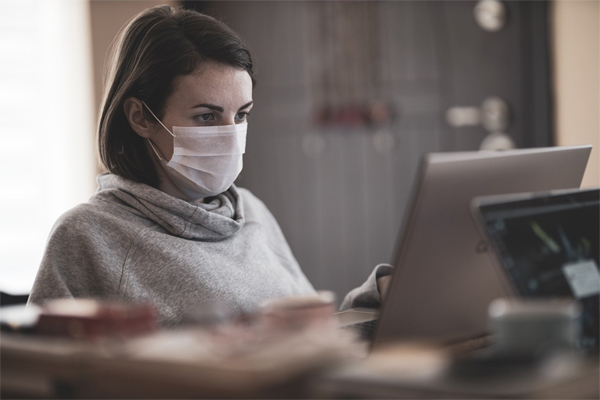The findings of a global IBM survey on the impact of COVID-19 has revealed that staff now expect more transparency and flexibility from their employers.
“Our data tells us that many individuals are looking for more transparency and flexibility from their employers as they navigate this great uncertainty caused by the pandemic,” confirmed Jesus Mantas, Senior Managing Partner of IBM Services. “Organisations need to focus on building trust with their workforce and customers, and agility to deliver solutions that meet them where they are.”
The IBM Institute for Business Value survey of more than 14,500 adults across Brazil, China, Germany, India, Mexico, Spain, the UK and the US showed that individuals are making marked changes in how they work, shop and live due to the pandemic. These new habits “may not shift dramatically even once a vaccine becomes available”, highlights the report.
Although more than half (52%) of Americans reported that they trust their employer amid the pandemic, their expectations about the measures needed to feel comfortable returning to the workplace remained high during July and August, confirmed the survey. Approximately 64% of Americans said employers need to clearly communicate what is being done to sanitise the workplace, and more than half indicated interest in technology-driven solutions like systems for reserving spaces to avoid crowded “hot spots” in the workplace.

Image credit: Engin Akyurt, Pixabay
THAT LIVING AT WORK FEELING
Some seem the fatigue of “working from home” is setting in, and more workers are now feeling like they are “living at work”, noted the report. The percentage of Americans indicating they would like to continue to work remotely at least occasionally declined from more than 80% in July to 67% in August, and this time only half said they wanted remote work to be their primary way of working (down 15 points from July). India had the highest percentage (33%) of respondents preferring to exclusively work remotely.
Roughly one in three Americans surveyed cited mental health as the number one factor affecting their preference for their future working environment; nearly half of respondents in India and Brazil agreed. The survey also revealed that individuals remain highly concerned about the impact of the COVID-19 pandemic on their daily lives, and demonstrated clear differences in outlook across age groups and countries.
Around 70% of surveyed Americans said COVID-19 has made them more concerned about the safety and health of themselves and their families, compared to 88% of Brazilians and 54% of Germans. Overall consumer optimism remains high with one-third of Americans confident that the US economy will recover in 2021. However, individuals in India and China were the most optimistic about their national economies recovering in 2020.

Image credit: Pixabay
DIFFERING VIEWS
Globally, however, IBM’s data suggests there is a generation gap as opinions about the impact of the pandemic vary widely across age groups:
- 69% of millennials (ages 25-39) are concerned about their job security and 60% said the pandemic has taken a toll on their mental health, higher than all other age groups.
- Baby Boomers (ages 55-70+) are the most pessimistic on economic recovery, with seven in ten reporting they believe their nation’s economy will continue to see an economic downturn or significant recession.
- Generation Z (ages 18-24) is the most optimistic about the economy, with more than half noting they believe the economy will recover to its pre-COVID-19 state in the next few months.
The overwhelming majority of global respondents said they believe we will see more pandemic events like this in the future. Around 69% of Americans expressed concern about a second wave hitting later in 2020, compared to three out of four in the UK, Mexico, Spain and Brazil.
ADDITIONAL FINDINGS
Other key findings include:
- Nearly one in three Americans report taking more online training or education as a result of COVID-19.
- More than half of Americans are worried that sending students back to school will lead to further outbreaks. At the same time, four in 10 are concerned that their child(ren) will fall behind in their education if schools do not reopen this year. Around 47% of feel strongly that their employer should provide special accommodations for childcare needs.








































